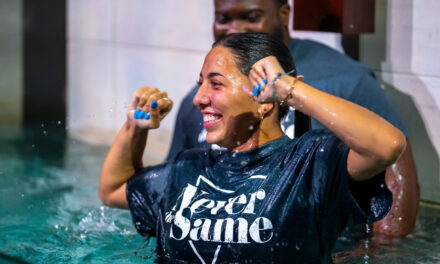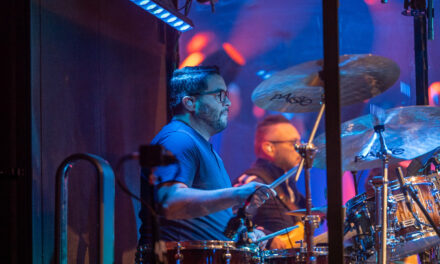There’s a certain degree of delusion involved in self-identifying as an athlete when your greatest accolade is the subtle prestige of regularly finishing just ahead of a race’s course cut-off-time, but if the array of dollar-store participation medals on my wall is any indication, I am one.
I tell you that to tell you this: in the absence of raw physical talent (that endless, cavernous void written on my DNA), I became a master in the non-racing disciplines of racing: gear, strategy, and most importantly—nutrition. I was, I felt, the Michael Jordan (not the Michael Scott) of what to eat before, during, and after a race. Even if I was last, I was still the last one to cramp, and I never bonked out.1 So, when I recently witnessed a mom handing her kids fistfuls of cooked pasta just before they got on the blocks to race in a neighborhood swim meet, my anxiety kicked into high gear.
It wasn’t against the rules, but loading those little bodies up with big carbs so close to race time, even with the best intentions in mind, only served to add unnecessary weight for them to carry to the finish. Here, you can almost hear the echo of the inspired writer of Hebrews preaching to us:
“Therefore, since we are surrounded by so great a cloud of witnesses, let us also lay aside every weight, and sin which clings so closely, and let us run with endurance the race that is set before us, looking to Jesus, the founder and perfecter of our faith…” (Hebrews 12:1-2, ESV, emphasis added)
The calling of the Christian life isn’t just about avoiding those things that are against the “rules,” it’s about seeking and doing those things that help us run the race while dropping every encumbrance that hinders us.
Runner’s World
Anyone who’s been through Scripture more than once will find themselves reconsidering texts they had previously taken only a pedestrian view of. Suddenly they are given new meaning as if they had never been there before. For me, at one time, it was this statement from Hebrews that pulsated an electric wallop through my spine. I realized—if sins were the problem to avoid, then weights were the ballast that prevented me from more fully ascending to holier heights. How could I, for my entire life, have focused so much on avoiding sin, but given so little thought to the weights I willfully carried?
That was no way to race! It is true that we must avoid sin at all costs, but God’s love and design for us is so much bigger than that. We cannot become so consumed by the “rules” that we forget the principle of them—the very heart of God—and by that heart is a plan for us to run a magnificent race, a weightless race, full of blessing, for his glory.
This realization should send a sizzle up our spine! Faith is not passive avoidance, but radical persistence. As John Piper observes, it’s when we stop asking, “Is it a sin?” and start asking “Does it help me run?!”2
A Rule of Thumb
It is only logical then for our natural selves to want to jump from Piper’s question to another: “Ok, so I have a pretty good beat on sins to avoid, but now which weights am I supposed to drop?” Social media, TV shows, music, toys, politics, hobbies, kids’ hobbies…we could fill a library with volumes of potentially encumbering weights only to be left with the task of discerning which diversions are propellants, and which are millstones. Ultimately, this game of whack-a-mole with our weights can lead to decision paralysis or even resigned ambivalence.
It is certainly worthwhile to consider ourselves—our preferences and proclivities—and to ask the Spirit for guidance in self-reflection, but there is a narrower path to a fuller outcome. We must leave the headspace of list-making and throw ourselves into the heart-space of transformational God-loving, which is to be after him, before ourselves—to live for him, and to die to self.
For laying aside our weights, then, a worthy rule of thumb is to forsake the very hand that desires to apply it. “Which weights should I drop?” We find the key in the personal pronoun of the question: I. Martyn-Lloyd Jones considered the matter of self-abnegation so important that he devoted an entire sermon to it, noting:
“The whole trouble in life, as we have seen, is ultimately this concern about self…[self-interest] always means defiance of God; it always means that I put myself on the throne instead of God, and therefore it is always something that separates me from Him. All moments of unhappiness in life are ultimately due to this separation.”3
Matthew Henry then explicitly links weights to self, characterizing it as “all inordinate affection and concern for the body, and the present life and world.”4 To Henry, this self-concern is, “a dead weight upon the soul, that pulls it down when it should ascend upwards, and pulls it back when it should press forward; it makes duty and difficulties harder and heavier than they would be.”5 Theologians throughout history agree—it is the self that must be slayed.
This rule of thumb, though not perfect, can still be incredibly helpful to us. As J.C. Ryle’s understood the Golden Rule, which I repurpose and apply here, “The rule settles a hundred difficult points…it prevents the necessity of laying down endless little rules for our conduct in specific cases.”6 Understanding and applying the principle (putting ourselves behind us) breaks the chain of endless list-making7, and transforms our race from one of obstacle awareness to one of finish focus.
It is a great kindness, then, that the writer of Hebrews follows the imperatives of avoidance (weights and sin) with a call to action, pointing us to something greater and more perfect than any rule of thumb we could ever conceive: look to Jesus, the founder and perfecter of our faith.8
Experiencing Weightlessness
I’m reminded of the way my mother would talk about her time pregnant with me, a summer baby. The unrelenting Houston heat did her no favors, and so she would cherish opportunities to cool off in the pool, luxuriating, nearly weightless as she floated along. In my own way, I have come to appreciate this feeling, for on many occasions, I have ended a training session in the pool by floating the same way. There is simply no substitute for the relief by release we experience in bodily surrender to weightlessness. This is the ultimate race strategy prescribed for us spiritually, a balm for what ails so much of us personally, and what explains the stagnation of so many in Christendom and in our congregations locally.
There is simply no substitute for the relief by release we experience in bodily surrender to weightlessness.
As long as we white-knuckle the weights in our lives, even for no other purpose than the freedom to do so, we begin running a little slower in the inside lane, a danger to ourselves and others; but when we leave ourselves behind and look to Jesus, we become faithfully fleet-footed finishers, weightless runners in the glorious race set before us.
- Gale Bernhardt. “Everything You Need to Know About Bonking.” ACTIVE.com, October 31, 2018. ↩︎
- John Piper. “Running with the Witnesses.” Desiring God, June 16, 2023. ↩︎
- David Martyn Lloyd-Jones, Studies in the Sermon on the Mount. (Martino Fine Books, 2011), Kindle Location 4429-4442. ↩︎
- Matthew Henry. Matthew Henry’s Commentary on the Whole Bible: Complete and Unabridged in One Volume, 2008. ↩︎
- Ibid. ↩︎
- John Stott. The Message of the Sermon on the Mount (The Bible Speaks Today Series). (InterVarsity Press. Kindle Edition), 191. ↩︎
- Consider The Antithesis of the Sermon on the Mount. ↩︎
- Hebrews 12:2 ↩︎








